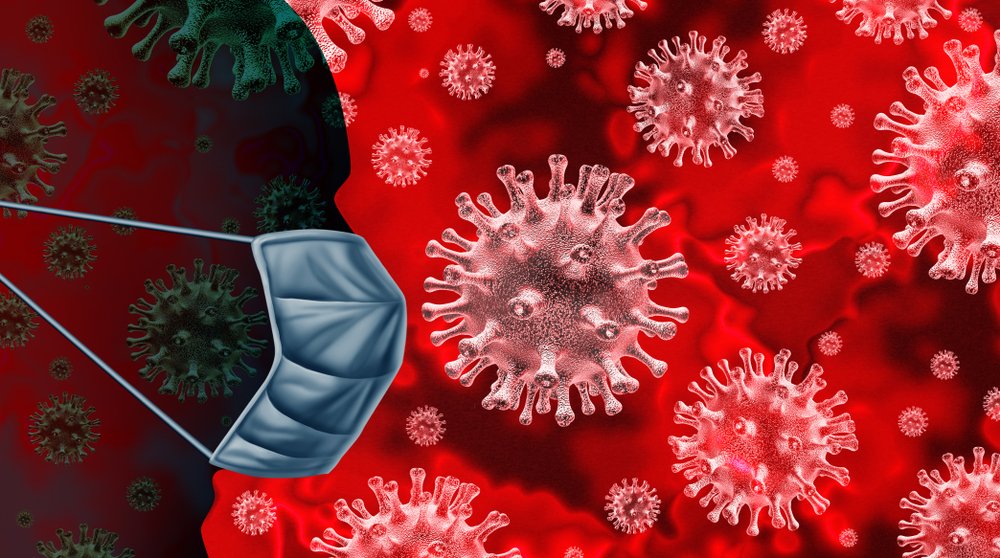
I am a palliative care physician in a hospital in our nation’s capital region. Like most urban hospitals, ours has been hit particularly hard by the COVID-19 pandemic. My colleagues and I are exhausted and emotionally devastated. We are not alone. Yesterday I learned a friend of mine from medical school, a selfless and compassion-driven emergency medicine physician in Los Angeles, died by suicide. Before the pandemic, between 300 to 400 physicians were committing suicide every year. I am silently holding my breath for what this year’s numbers might reveal.
With eyes wide open and an overwhelming sense of dread, my nursing and physician coworkers and I have repeatedly watched our patients’ bodies incrementally and relentlessly deteriorate, betraying the vibrant, purpose-driven men and women they were before they arrived at our front door. We continue to try everything to stop the spiral of decline. Yet all of the medications and interventions, the tubes, lines, wires, and machines, the beeps, alarms, and reminders, and the hours of thinking, problem-solving, brainstorming, and rescuing do not change the outcome.
The cosmetologist who was teaching and mentoring in one of the city’s most economically disadvantaged neighborhoods, the jazz musician who was once on Howard University’s marquee, and the bus driver who was exposed to COVID-19 when he drove National Guard troops to the Capital on January 6th: They were pillars of their community. Now they are dead, and we remain haunted by the feeling that nothing we did mattered.
As the older generation is vaccinated, our patients are getting younger, with small children and lives not fully realized. We agonize even more. Last week via Zoom, in response to her request for truth, I informed the mother of a 33-year-old with the virus — then in our intensive care unit on multiple forms of life support, now dead — that we have not had a patient in his condition survive. I watched as the light in her eyes suddenly faded, her body reflexively began to rock, and she let out a deep wail. My words had crushed her. And this same story, this same reaction, plays out in front of me almost every day. I have begun to think of myself, grievously, as a hope-snatcher.
After our patients die, my nursing and environmental services coworkers tuck their cell phones, glasses, wallets — and wedding rings — into small baggies and present them to the family members who drive up and extend a trembling hand through an open car window. We were the ones who were with these patients through all of their last days. But all we have to give their families is a small plastic bag. To the families, the contents of these bags are evidence of who they were when they arrived when they last said goodbye to each other. To us, they are evidence of failure and futility. Despite our uncompromising efforts, we could not save their lives.
As a palliative care provider, I know that saving lives is not our only job. We are called to cure when possible, to heal what can be healed when cure is not possible, and to care always. However, this past year it has often felt like the best outcome any of us can hope for is that families understand that we tried. Then we are inevitably left wondering if we tried hard enough. A question that gnaws at us, over and over again.
We know about deep breathing exercises, meditation, gratitude journals, and green smoothies and have found them all woefully inadequate. Even therapy is not enough. We are not burned out and lacking resilience. We are morally injured and unable to reconcile what we have experienced with who we are as healers. What we need is time: time away from the ongoing trauma and rest. We need to weep, grieve, and reflect. We need to reconnect with our spouses and our partners, and our children. We need to be held. We need to sit beside still water and watch a bumblebee collect nectar and remember how to laugh. Only then can we return wounded but healing, and once again willing and able to show up to this sacred work.
This plea for help is on behalf of every hospital worker who has been on the front lines of the COVID-19 pandemic — from the environmental services staff and medical assistants who are often not recognized, to the social workers and chaplains who are surrounded by distress, to the physicians and nurses who continue to stand and receive the sick — we need more time off in the coming year. Some hospital workers will need to continue to be paid; others will just need permission and people to back-fill their roles until they return. If you are a business leader who makes logistical, technological, charitable, and financial decisions every day: I am asking for your time, financial wherewithal, personal connections, commitment, and expertise in strategic planning in order to give every front line COVID-19 hospital worker more time off in the next year than they can and will be allotted by their health systems. Consider using your unique talents to radically change how our country’s health care system moves on from this crisis.
Please help us. Help my friends and my colleagues. Help us do the thing we diligently, faithfully, and without hesitation tried to do for over half a million Americans this year. Help us survive.
Kristin Adams Forner is an anesthesiologist and palliative medicine physician who blogs at Mending the Fractured Story.
Image credits: Shutterstock.com
